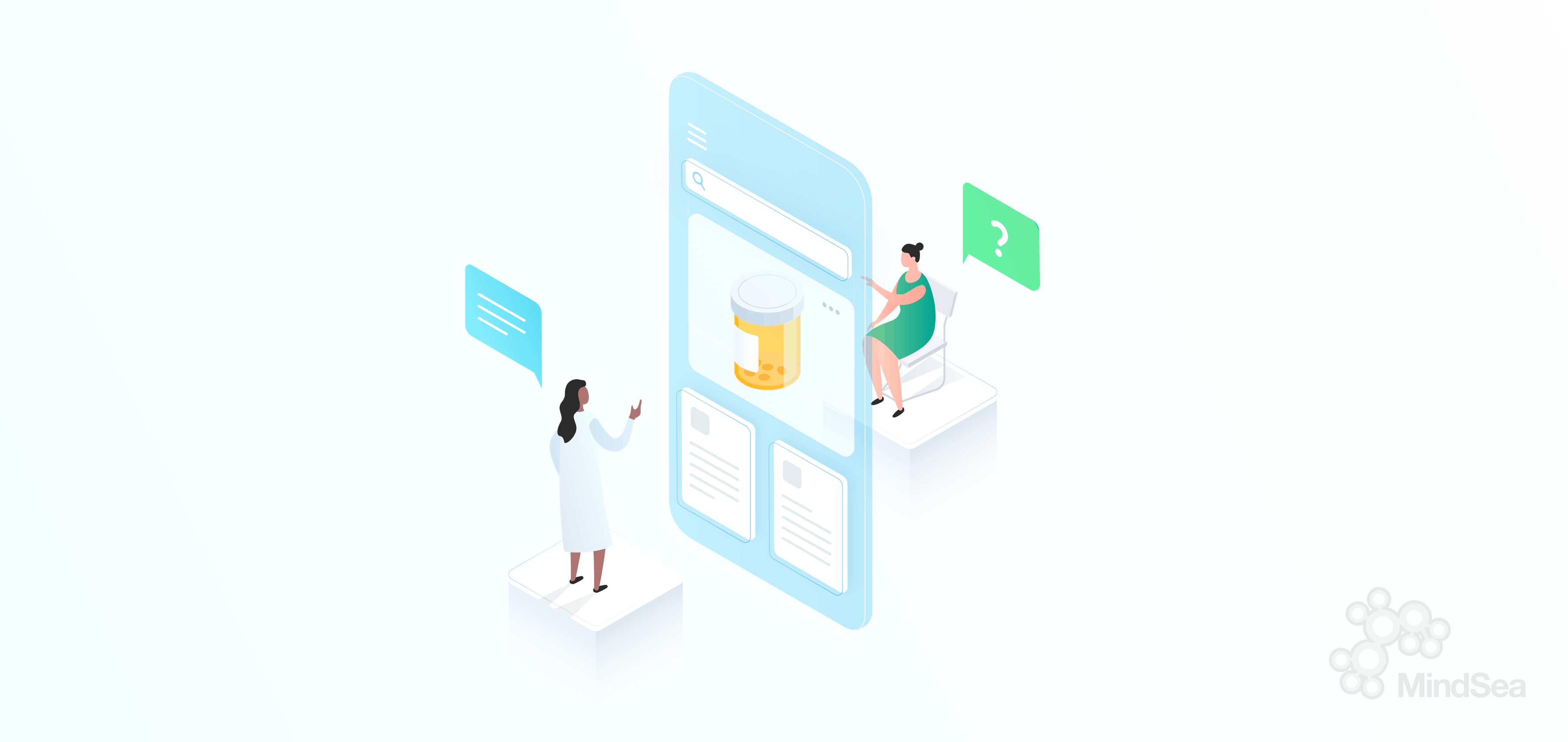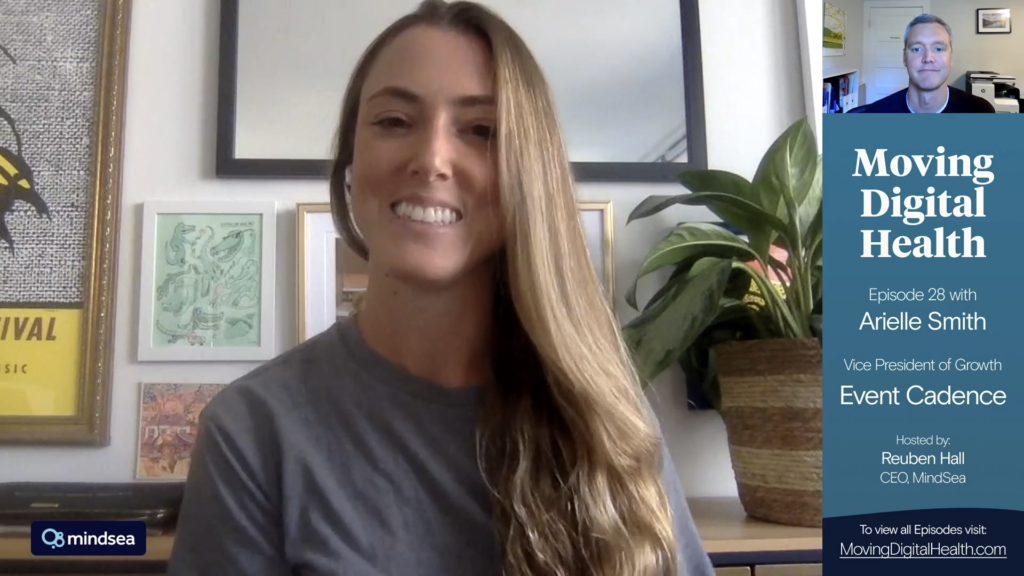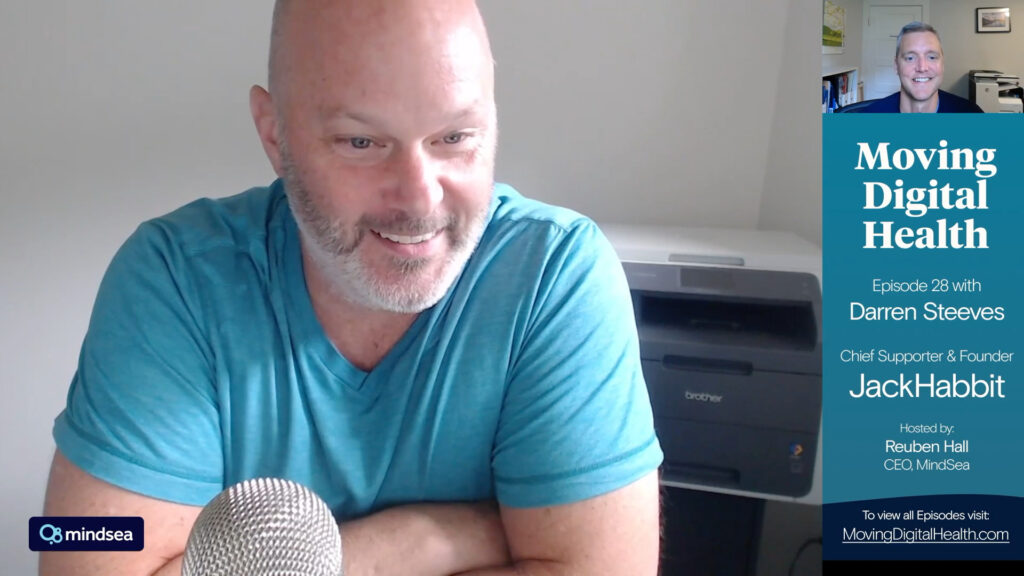Over 318,000 healthcare apps are available today across all app stores.
More than 200 more healthcare apps are added daily.
This staggering rate of growth shows great hope for the future of technology, the future of healthcare, and the future of mobile.
While this is a clear sign of efforts being made to help improve the healthcare sector, there’s still a long way to go.
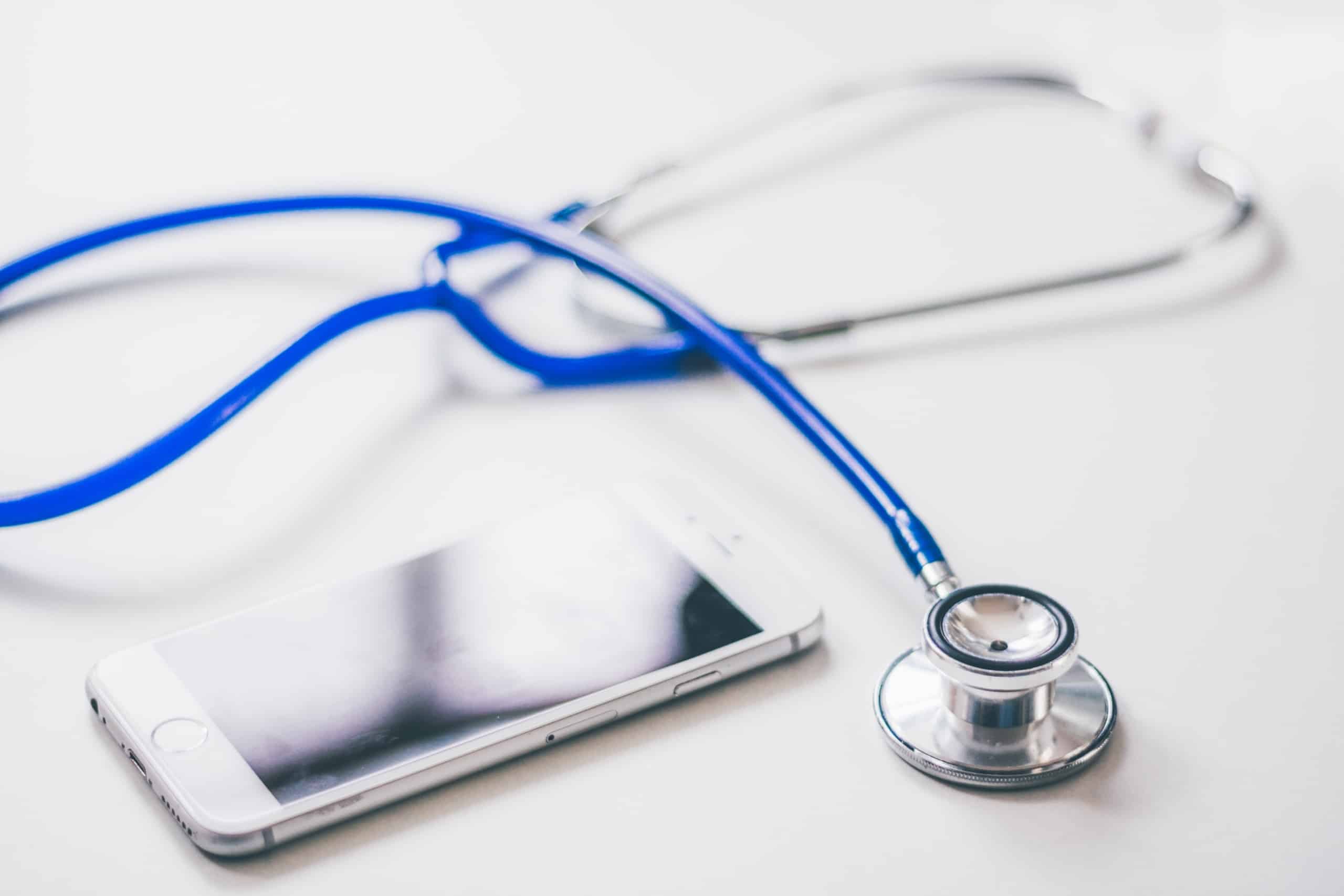
Wait times.
Accessibility.
Cost.
More still needs to be done to address these and other problems that patients are facing in emergency rooms and doctors’ offices.
Healthcare apps have the opportunity to positively affect the way doctors and healthcare providers deliver care. And patients can experience improvements almost immediately.
Today, we’re going to talk about what these apps can do and highlight four major ways they improve patient care.
Mobile Apps & Healthcare
Mobile apps have allowed healthcare providers to deliver a better standard of care to patients.
As the use of healthcare apps grows, we’re seeing better outcomes in speed, efficiency, cost, and more. Bottom line: mHealth (or mobile health) solutions make way for new, innovative care and delivery that can produce better results for both patients and providers.
Let’s explore some of the benefits of healthcare apps in more detail:
Reaching More People In Less Time
Healthcare apps are making communication between patients and doctors much more convenient.
Patients are using video tools, online messaging, and texting to communicate with their doctors, saving time and money otherwise spent traveling to and waiting in a clinic. This real-time communication between providers and patients can build better doctor-patient relationships by boosting engagement and improving patient satisfaction, among other benefits.
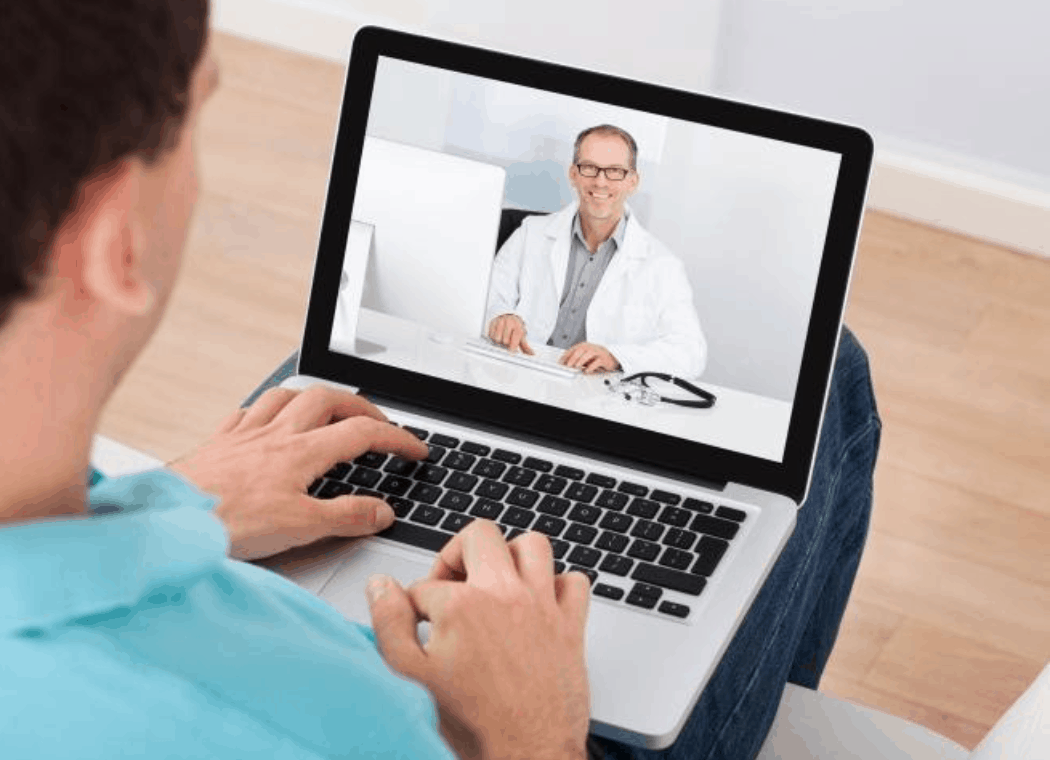
It can also encourage collaboration among practitioners. When health professionals can more easily consult each other and share their expertise, the patients ultimately benefit.
Providing Equal Opportunity To Patients In Rural Areas
Rural communities tend to be isolated, making it hard for people to have quick access to proper healthcare.
Healthcare apps can provide patients with information on awareness, prevention and management of health issues, and the ability to stay in touch with a doctor remotely.
For example, Practo can connect patients with healthcare providers and with advice about their health issues so they can determine what steps to take.
This type of technology gives isolated patients access to a healthcare provider from anywhere in the world at any time.
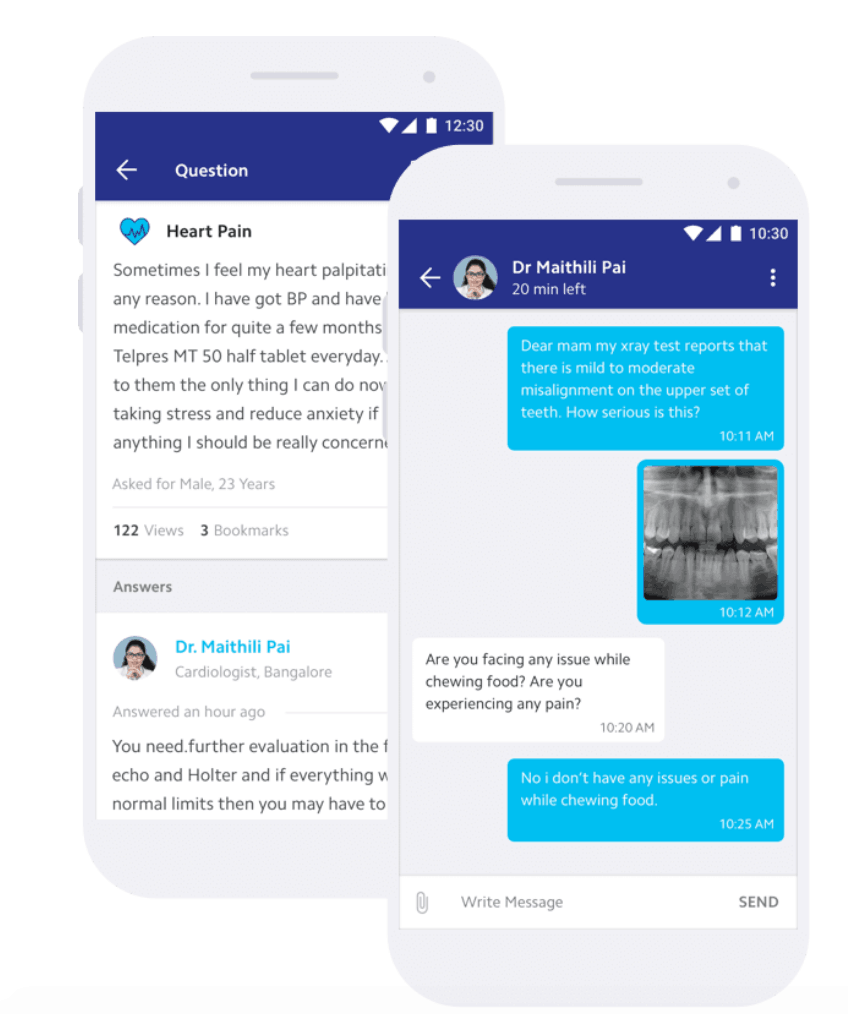
Supporting Patient Engagement
Research is beginning to show a shift in people’s attitudes toward mHealth—more and more people are openly turning to apps to support their healthcare needs.
Why? Healthcare apps allow a patient to get more involved in their wellbeing, and they’re a no-brainer because technology—specifically mobile technology—is already such an integral part of most consumers’ lives. In fact, 79% of consumers are more willing to use a doctor who allows them to communicate using an online portal or a mobile app.
In addition, these apps allow doctors to share test results and provide medication advice and reminders to their patients instantly.
People expect quality care and access to information about their own health. They also want transparency with their providers. These apps are giving patients access to more immediate and personalized healthcare. And when people have access, they become more engaged in their healthcare.
Making Data Collection Easier
It can be tedious to wait for test results or provide health information to a healthcare provider.
Healthcare apps can change this.
Certain healthcare apps allow doctors to access patient information, health history, test results, medications, and vitals at the touch of a button—and patients are asking for this!
Likewise, patient data (e.g., pain levels and symptoms) can be collected through the app rather than at the doctor’s office, reducing information gaps and saving time during in-person visits.
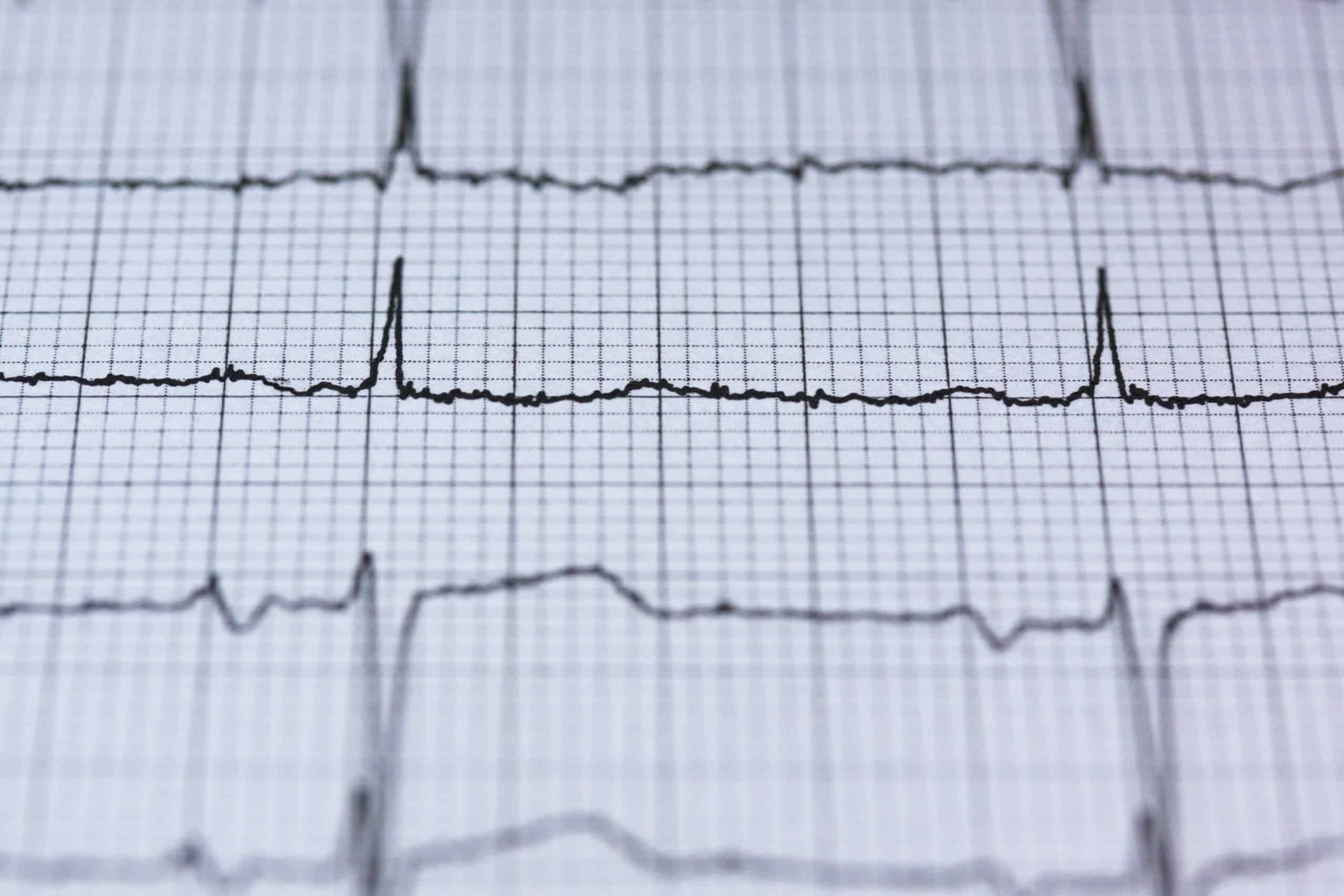
Keep in mind, though, that protecting your patients’ data is of the utmost importance. If you’re considering a healthcare app for your clinic that involves the collection, storage, management or sharing of patients’ private health information, you will need to ensure you are HIPAA compliant and keeping that information secure.
Wrapping Up
There is no doubt that mobile devices are changing the way we live. And now they’re helping to improve patients’ health by empowering them and keeping them informed.
As healthcare apps continue to evolve, we will see improved costs (for both patient and provider), shorter wait times, better patient engagement and increased access to care.
Are happier patients and a more efficient clinic important to you? New technology is making this a possibility, and it’s getting better by the day. It’s important to start thinking now about how to incorporate this technology into your practice and start improving patient outcomes.
If you work in healthcare or are looking to launch an app that can impact millions, get in touch today, or take a closer look at our approach to bringing healthcare apps to life!
